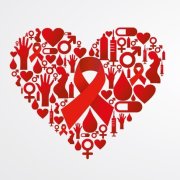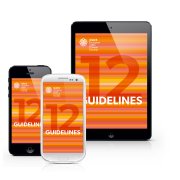Plenary lecture synopses
DAY 1
The use of neutralising AB in clinical studies
December 11, 2020 – 13:07-13:25
ART prevents and suppresses HIV-1 replication but does not eradicate the long-lived latent reservoir of integrated proviruses. A small fraction of HIV-1-infected individuals develops antibodies that effectively neutralise the majority of existing HIV-1 isolates. This neutralising activity is due to one or a combination of monoclonal antibodies that target different non-overlapping epitopes on the HIV-1 envelope. Immunotherapy with broadly neutralising antibodies may be an alternative or an adjuvant to ART because, in addition to preventing new infections, anti-HIV-1 antibodies are able to clear the virus, directly kill infected cells and produce immune complexes that can enhance host immunity to the virus. In this state-of-the-art plenary session, the discovery and development of neutralising antibodies as well current applications in (pre-)clinical studies are discussed.
Speaker: Philipp Schommers, Germany
Tops & flops in the field
December 11, 2020 – 13:27-13:46
There have been a number of new developments in HIV treatment, including the inclusion of two-drug regimens in the 2019 EACS & DHHS guidelines & ever-increasing use of integrase inhibitors. This session will highlight guidelines updates & emerging concerns related to newer drugs. The ethics of gaining new data when many people are virologically suppressed will be reviewed. Finally, this session will focus on how we can best integrate the next evolution of HIV treatment, injectables, into practice, what the data gaps are and how we can ensure new developments are implemented in a safe, cost-effective manner.
Speaker: Laura Waters, United Kingdom
Acute HIV infection: State of the art
December 11, 2020 – 13:48-14:11
Recognising and diagnosing acute HIV infection is crucial to linking patients to care early and presents an important opportunity for prevention. In addition to the well-documented public health benefit, early initiation of antiretroviral therapy (ART) has a number of beneficial effects including improved preservation of immunologic function, significantly reduced time to viral suppression, reduction of the viral reservoir, and importantly improved long-term complications of untreated HIV such as bone health, cardiovascular disease, malignancies, amongst many others. In this state-of-the-art plenary, the clinical picture, diagnosis and therapy of acute HIV infection will be presented, accompanied with data from centres who have led the way in treating acute HIV infection.
Speakers: Maximilian C. Aichelburg, Austria / Dominic Rowley, Ireland
DAY 2
Models of care
December 12, 2020 – 9:07-9:28
HIV landscape has dramatically changed, and HIV infection is now considered a long-term, manageable chronic disease. Although there are some differences among European countries in the 90-90-90 goals, chronicity challenges and quality of life is a primordial objective in our clinics. In this plenary, we will review different European models of care, highlighting pitfalls and opportunities for people living with HIV. We will also discuss innovative models of care, such as the “chronic care model” and patient-centred model. New technologies such as machine learning and artificial intelligence could help us change the standard of care at an individual and population level.
Speakers: José I. Bernardino, Spain / Markus Bickel, Germany
Bridging East vs West Europe in light of the HIV epidemic
December 12, 2020 – 9:30-9:51
As European HIV clinicians and researchers, we should battle HIV together, including by looking across our countries’ borders. This is especially true in light of the rising HIV epidemic in the East in contrast to falling numbers of new HIV infections in the West. In this session, we will provide an overview of the current HIV epidemic and discordant HIV care facilities in Europe, illustrate solutions, and offer best practices that you might want to start with tomorrow in your own clinic.
Speakers: Casper Rokx, Netherlands / Marta Vasylyev, Ukraine

20th European AIDS Conference
15-18 October 2025 Paris, France

EACS Guidelines updated
The EACS 12.1 and the app are available for free on


Educational Programme
Training and educating the next generation of clinicians and researchers is an EACS core activity.

EACS Resource Library
Access all scientific content of EACS core activities! (members only)

Interim Guidance
Interim Guidance on the Use of Statin Therapy for the Primary Prevention of Cardiovascular Disease in People with HIV